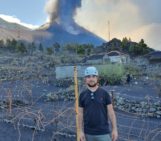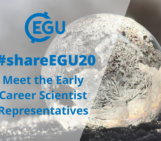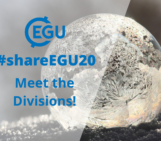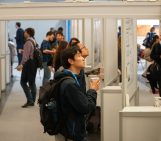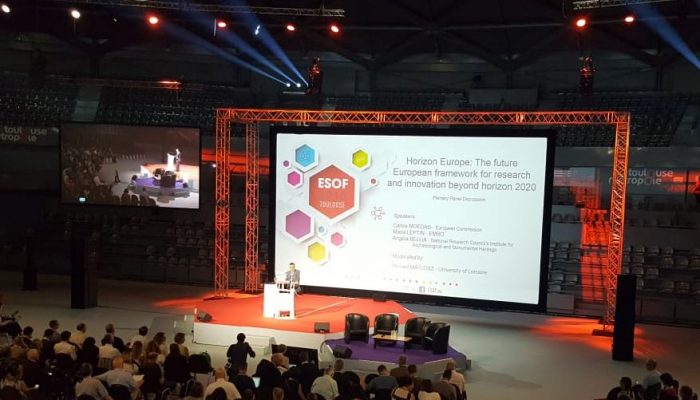
The EuroScience Open Forum (ESOF), the largest interdisciplinary science meeting in Europe, was held earlier this month in Toulouse, France and attracted scientists and policymakers from across the globe. Held every second year, ESOF provides an interface between science, policy and society.
This year was my first ESOF. I attended as the EGU Policy Officer and was able to actively participate in a number of sessions. I also informed other participants about the EGU and our science for policy activities using a poster that was displayed throughout the week. Not only was it a good opportunity to share some of the EGU’s activities with those working outside of the geosciences, but it also allowed me to extend my own horizons, learn more about the science-policy interface and talk with people that aren’t in my regular field of vision.
The sessions at ESOF were also quite unique in that they had a relatively balanced scientist / policymaker participation. The majority of topics discussed were based on issues that either involved scientists or effected them with some of the main themes of the week including Horizon Europe (the EU’s new research funding programme), the importance of citizen engagement in both policy making and science, open science, increasing opportunities for women within science and opportunities for early career scientists.
I’ve summarised some of my favourite sessions below, which will hopefully allow you to gain a better understanding of ESOF while also giving you some highlights from the week.
Session 1: Ensuring the quality and usefulness of science advice to policymakers in times of crisis
In times of crisis, governments rely on timely and robust scientific advice to make informed and effective policies. Crises can come in many forms, from earthquakes and floods to epidemics and even chronic predicaments such as climate change.
This session was inspired by a new OECD (Organisation for Economic Co-operation and Development) report that outlines how scientific advice can best support crisis management during transnational crises.
With the session speakers coming from three different continents (and five different countries), it became obvious that the method used to manage scientific input during times of crisis differed significantly. This was said to be due to a wide range of reasons, from divergent legal structures to the type of crisis a country was used to dealing with. As one speaker stated, “One country’s crisis is another’s business as usual”.
And while the methods used to incorporate scientific evidence during a crisis differed, a couple of things were clear for all of the panelists
- It is vital for governments to know who to ask for advice during various crises
- For scientists to provide advice during a crisis, it is crucial for them to build a rapport and mutual trust with policymakers before it happens
Session 2: Life beyond academia: thinking outside the box
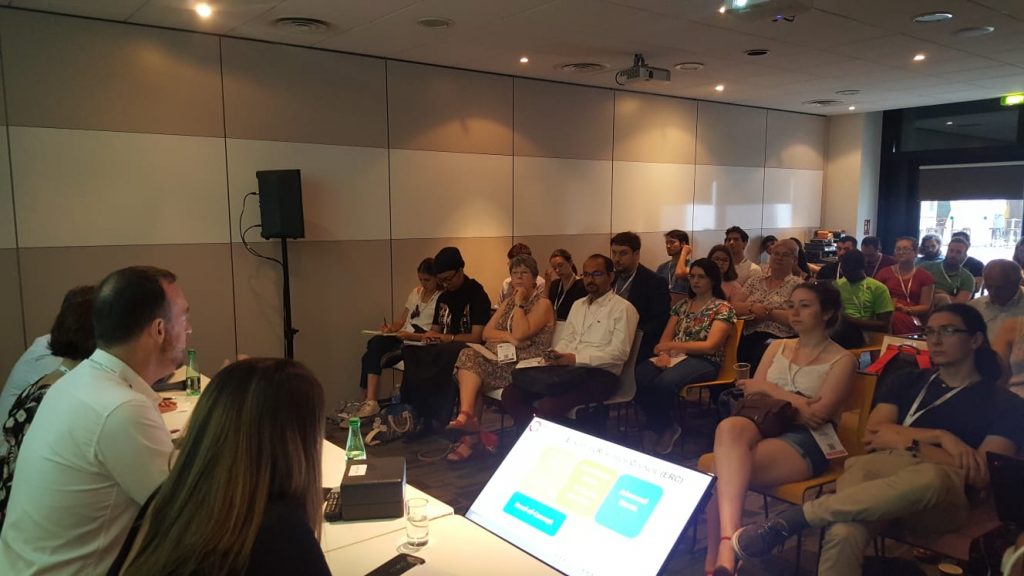
Panel members and audience during the ‘Life beyond academia’ session at ESOF
I might be a bit biased with this one, but the co-organised EGU and EATRIS session on alternative careers was really engaging and had four fantastic speakers who all followed very different career paths:
- Virginie Bros-Facer, Scientific Director of EURORDIS-Rare Diseases Europe
- Martin Penny, Head of Unit for Physical Sciences and Engineering in European Research Council
- Florence Bietrix, Operations Manager at EATRIS
- Jonathan Bamber, EGU President and Professor of physical geography at the University of Bristol
With more PhD and post-doc positions than there are tenured posts, highlighting some of the opportunities that exist outside of academia is critical. Not only this, but scientific skills and knowledge are essential in the functioning of countless industries and areas outside of academia. Each speaker told their story, outlining why they left academia (or in Jonathan’s case, why he stayed) and gave advice for other scientists who would like to do the same.
If this sounds like an interesting session, keep an eye out! There could be a similar session at the 2019 EGU General Assembly.
Session 3: How to lobby for science?
The majority of my work as the EGU Policy Officer is based around science for policy. That is, encouraging policymakers to use science and evidence to support their decision making. However, this session focused on a different (albeit similar sounding) concept: policy for science.
There is currently a relatively low representation of scientists in the UK and EU parliaments and the EU science advisory mechanism. This session outlined the impact that science, innovation and educational policies have on academics and the importance of scientists being more mobilised in lobbying within these policy areas. As an example, the Co-Founder of Scientists for EU Mike Galsworthy discussed his role in mobilising scientists to petition policymakers during the Brexit campaign. He also emphasised some of the impacts Brexit is likely to have on researchers both in the UK and EU.
Following this, the panel presented their top ‘lobbying for science’ tips:
- Get the public and media involved with the issue before approaching any policymakers. Policymakers generally won’t take the lead on a particular issue but will jump on-board if the issue is being highlighted by the media or if there is a push from the public. Continual scientific engagement and outreach is therefore incredibly important. You can visit the EGU’s communication resources if you would like more information about how you can reach out to the media, policymakers and general public.
- Find your voice. What are you passionate about? What issues matter most to you? There are plenty of issues that are impacting the scientific community to choose from!
- Find a community. There are tonnes of scientific and research based communities around the globe. Find a community that has similar interests to your own and attend meetings or join an online forum. Groups like Sense about Science help scientists play an active role in public discussions about science and regularly organise Voice of Young Science workshops to encourage early career researchers to make their voices heard in public debates.
Session 4: Women in science: let’s change the world!
Organised by the European Research Council, this session focused on a number of inspirational narratives and assertive actions that have been used to promote women in science and particularly in STEM. The approaches used by various organisations to reduce inequality were outlined, and the methods that could potentially be replicated were highlighted. This session had a particularly strong participant engagement during the Q&A time with both questions for the panel and personal stories from the audience.
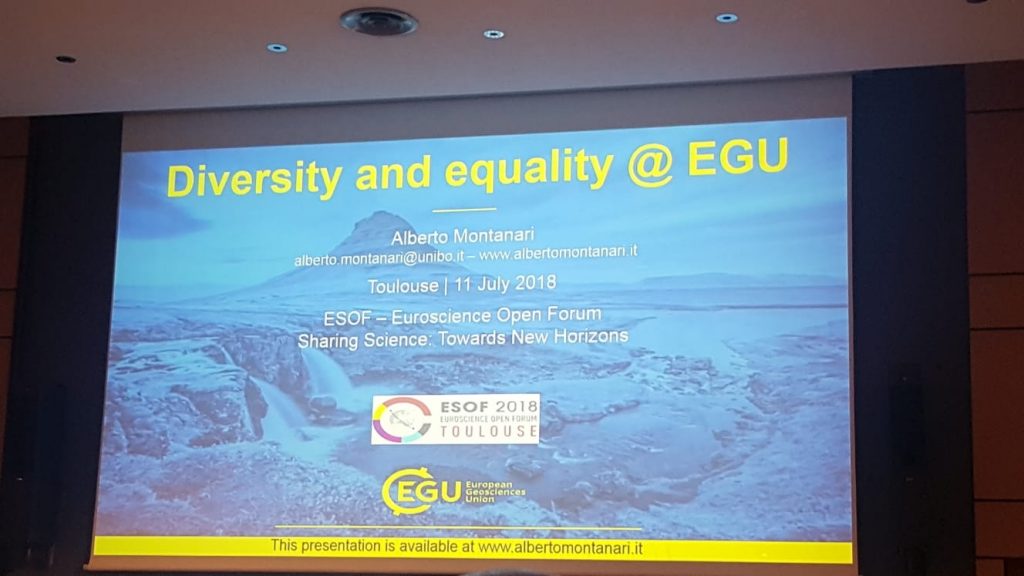
EGU Vice-president Alberto Montanari presentation on the steps taken by the EGU to support diversity and equality
EGU Vice-president Alberto Montanari, outlined some of the steps that the EGU is taking to increase female representation and diversity more broadly. Equal opportunities and diversity within the sciences definitely seemed to be one of the key themes at this year’s ESOF with a relatively large number of sessions focusing on the issue, especially when compared with previous years.
Poster session
This year was the first time that ESOF had a poster session. Specifically targeting early career scientists, this poster session provided a space for academics and science communicators to present their research in a non-academic setting and to a diverse audience. While the poster area was a little small this year, there is definitely room to expand and improve upon it in 2020.
…and in summary?
It can be difficult for scientists to justify a week away from their research for a conference that isn’t on their specific area of expertise but ESOF is a great opportunity to meet people from different sectors, learn about methods of sharing your science and reaching out to the public and policymakers while also gaining an insight and an understanding of what is going on on a larger scale. The next ESOF will be held in Trieste, Italy in July 2020 – hopefully see you there!

